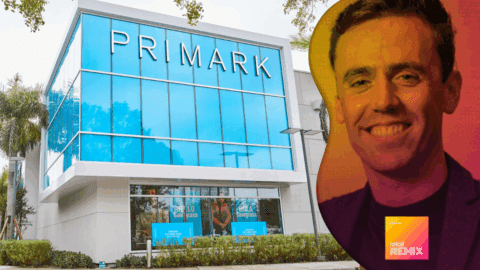There are strong signs that the “Great Resignation” is still having a major impact on the U.S. job market as a whole, and on the retail and hospitality industries in particular. That’s in part because employers’ difficulty filling jobs has itself become a big factor in job dissatisfaction. According to the 2022 Job Seeker Nation Report from Employ, based on a survey of more than 1,500 workers earlier this year:
- 40% of workers report high levels of turnover and increased workloads at their companies;
- These issues have led to increased stress levels and burnout for 78% of workers overall and 82% of retail workers; and
- 45% of all surveyed workers are actively seeking a new job or plan to within the next year. In retail specifically, the figure is 46%, but the sector with the highest proportion of active job seekers is technology, at 53%.
Corey Berkey, SVP for People and Talent at Employ, shared his insights about the survey results and their implications for retail in an exclusive interview with Retail TouchPoints.
Retail TouchPoints (RTP): Retail and hospitality have traditionally suffered from high turnover levels, particularly among entry-level and frontline employees. How is the situation today different from previous periods?
Corey Berkey: Our survey found that 71% of retail/hospitality workers are “open to other job opportunities.” If a retail or restaurant manager is reading this and thinking about their own staff that will keep them up at night.
Among all workers, 49% said they felt they could make more money today simply by changing jobs. Workers are seeing people who used to work in the store leaving, and when they do they’re commonly making more money. The retail worker is saying to himself “I work harder than they did, so if they can go make that money, why am I still here?”
Also, retail and hospitality workers typically covet the Monday-to-Friday, 9-to-5 job schedule. There are probably a lot of folks out there who are serving food, tending bar and working in retail that want to get into a professional services role, but I doubt there are a lot of people coveting bartending until 2 a.m. It’s about a hierarchy of needs, and their first need is to be in a 9-to-5 job. And if they can work from home [in this new job], that’s not too bad either. So having a regular schedule and the opportunity for remote work can influence their decisions, and I think that will continue to be the case.
RTP: What have been the ongoing impacts of the “Great Resignation” for retail?
Berkey: When we looked specifically at retail, 82% said they felt increased levels of stress and burnout, with 40% saying there was high turnover in their organization — and I would be willing to bet that the actual turnover number is higher. Among all surveyed frontline and essential workers [a group that includes grocery and general merchandise cashiers], 58% say they have worked more in the past year due to employee turnover.
One thing we’ve seen throughout the Great Resignation is a brain drain of institutional knowledge. We all work so fast that we don’t always get a chance to memorialize conversations and write down what the process for something should be. As people leave, so goes the knowledge and the process. The remaining workers are spending time figuring out how to do things they used to do, and hopefully memorializing it.
RTP: There’s been talk of the economy slowing down, which typically makes people who have jobs cautious about leaving them. Would that lower turnover rates?
Berkey: I feel that a downturn is going to offer little or no relief to employers, unless it’s causing them to shut down completely. They will still be hard-pressed to get top talent, and hospitality and retail will feel that pain longer than other sectors.
RTP: How big a role does compensation play?
Berkey: Compensation is certainly a big driver; 53% of job seekers said compensation is the No. 1 factor in deciding to reject or accept an opportunity.
On the other hand, more than one-third (37%) of workers we surveyed believe they are offered “fair” compensation. Admittedly that’s subjective, but something employers could do is explain the “why” behind compensation — being transparent about how you, the employer, arrived at the decision of what the worker is paid. In the psyche of today’s worker, there must be something behind that number.
In an environment with low wages and high demand for workers, and not enough people to staff the store in many cases, even if a worker is getting overtime pay, providing a small token of appreciation, like a gift card, and having a conversation can help. Employers need to be in a connected relationship with workers and figure out how you can give them these little moments of gratitude.
RTP: Is this particularly important for Gen Z employees?
Berkey: It’s true that a lot of the generation entering the workforce is looking for a perceived relationship with a company. To them that’s associated with being heard in the workplace. A lot of what you can do to build that relationship is to just listen; it’s not always about having an answer. It’s about asking “How was your day?” versus asking “What have you done for us?”
RTP: Do you think these attitudes are supporting the unionization efforts we’ve been seeing at retailers like Starbucks, Trader Joe’s, Apple and others?
Berkey: It makes sense that workers are looking for unionization, but the thing I’ll challenge anybody on is this: If a union is approved, that means employees pay union dues, which is a cost to them. Then it’s the union’s responsibility to ensure they’re driving value for their members. Just saying “There’s a union now” doesn’t help workers with their wages and benefits. If you don’t have the right leadership in the union, or the right strategic plan to achieve those objectives, you’re essentially funding a pizza party once a month.















